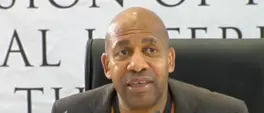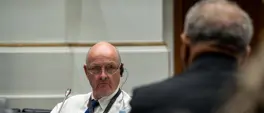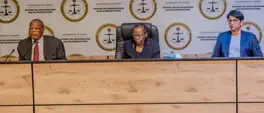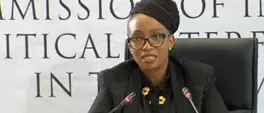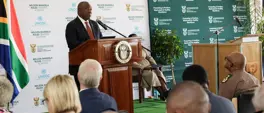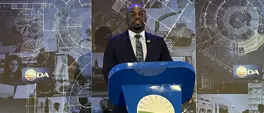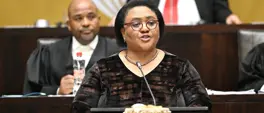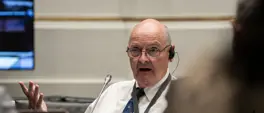Fiscal framework, revenue proposals underpinning national budget set to be debated by parties
Lindsay Dentlinger
9 June 2025 | 5:00Minister of Finance Enoch Godongwana tabled a new budget in May, after the first budget was nixed before it could be tabled and the second was taken to court after the DA refused to accept an increase in the standard VAT rate.
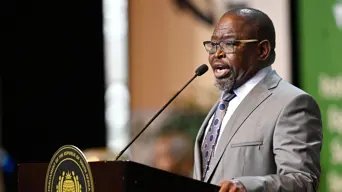
FILE: Minister of Finance, Mr Enoch Godongwana, arrives with his executive to deliver the 2025 Budget Speech during the National Assembly plenary at the Cape Town International Convention Centre. Picture: Phando Jikelo/ Parliament of SA.
CAPE TOWN - It's a big week ahead for Minister of Finance Enoch Godongwana as the fiscal framework and revenue proposals that underpin the national budget face a tough test to meet political muster.
Godongwana tabled a new budget in May after the first budget was nixed before it could be tabled, and the second was taken to court after the Democratic Alliance (DA) refused to accept an increase in the standard value-added tax (VAT) rate.
While the budget is still expected to face fierce objection from opposition parties when it’s debated on Wednesday, it’s less likely to be rejected by coalition partners in the Government of National Unity (GNU).
Last week, the third version of Budget 2025 passed the crucial first test of meeting the approval of Parliament’s finance committees, although not all parties are represented in these structures.
ALSO READ:
• Parliament's Standing Committee on Finance chair Maswanganyi says debate on fuel levy hike not over
• Parliament’s finance committee approves fiscal framework, revenue proposals underpinning budget
• Main opposition parties reject Treasury's assertion of pro-poor budget
The uMkhonto weSizwe (MK) Party and Economic Freedom Fighters (EFF), however, still vehemently oppose this version of the budget, saying it’s one of austerity and not pro-poor.
The EFF last week lost a bid to get the minister to scrap the fuel levy increase, which is expected to generate R4 billion in revenue to fund the more than R2 trillion budget.
Both houses will sit in separate sessions on Wednesday to approve the fiscal framework and revenue proposals, paving the way for the Division of Revenue and Appropriation Bills to be tabled before the relevant finance committees for consideration.
State departments will then also have to appear before Parliament’s portfolio committees to detail their expenditure plans for the next year before the Appropriation Bill is considered for approval at the end of July.
Get the whole picture 💡
Take a look at the topic timeline for all related articles.
